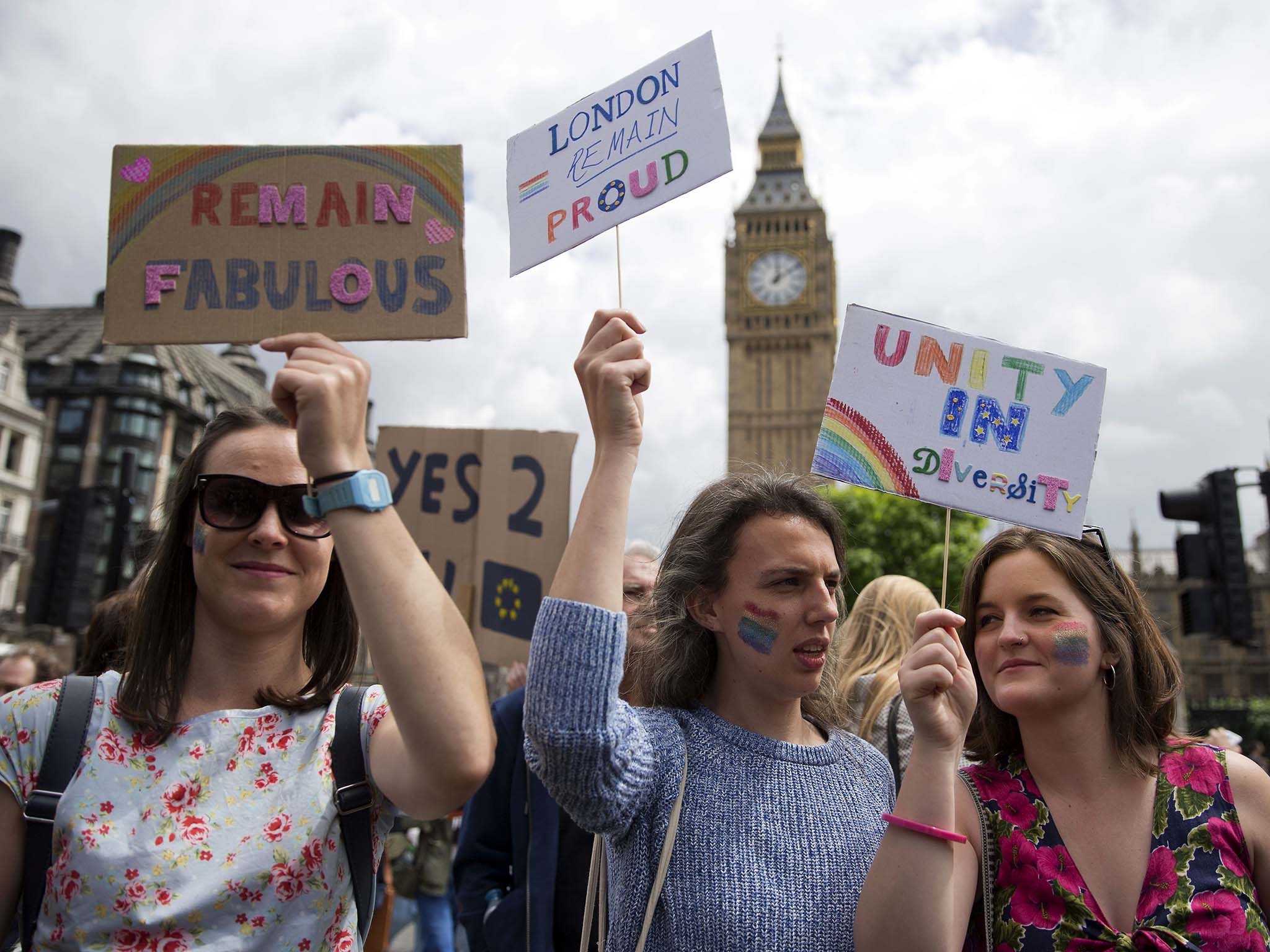Brexit: Government rejects second EU referendum petition signed by 4.1 million
‘We must now prepare for the process to exit the EU,’ the Government says

Your support helps us to tell the story
From reproductive rights to climate change to Big Tech, The Independent is on the ground when the story is developing. Whether it's investigating the financials of Elon Musk's pro-Trump PAC or producing our latest documentary, 'The A Word', which shines a light on the American women fighting for reproductive rights, we know how important it is to parse out the facts from the messaging.
At such a critical moment in US history, we need reporters on the ground. Your donation allows us to keep sending journalists to speak to both sides of the story.
The Independent is trusted by Americans across the entire political spectrum. And unlike many other quality news outlets, we choose not to lock Americans out of our reporting and analysis with paywalls. We believe quality journalism should be available to everyone, paid for by those who can afford it.
Your support makes all the difference.The Government has rejected a call for a second referendum on European Union membership in a petition that was signed by more than 4.1 million people following the Brexit vote.
It was the most-signed Government petition since the process was introduced in 2011.
However in an official reply, the Foreign Office said 33 million people had had their say and “the decision must be respected”.
“We must now prepare for the process to exit the EU,” it said.
The petition, which was set up by a Brexit supporter before the referendum was held, had called for the Government to annul the results if the Remain or Leave vote won by less than 60 per cent on a turnout of less than 75 per cent.
Government petitions which reach over 100,000 signatures must be considered for debate in parliament.
The Foreign Office said: “The EU Referendum Act received Royal Assent in December 2015. The Act was scrutinised and debated in Parliament during its passage and agreed by both the House of Commons and the House of Lords. The Act set out the terms under which the referendum would take place, including provisions for setting the date, franchise and the question that would appear on the ballot paper. The Act did not set a threshold for the result or for minimum turnout.
“As the Prime Minister made clear in his statement to the House of Commons on 27 June, the referendum was one of the biggest democratic exercises in British history with over 33 million people having their say.
“The Prime Minister and Government have been clear that this was a once-in-a-generation vote and, as the Prime Minister has said, the decision must be respected. We must now prepare for the process to exit the EU and the Government is committed to ensuring the best possible outcome for the British people in the negotiations.”
In the wake of the Brexit vote, the petition was shared widely on social media by Remain supporters.
As the number of signatories soared, the petition's original author, Leave activist William Oliver Healey, disowned it, saying his opinions on the need for a high turnout and high level of support for one side had been “hijacked” by EU supporters.
The Government’s decision will come as a blow to those who hoped to find a parliamentary means of stopping Britain’s withdrawal from the bloc.
However, calls for a second referendum on the terms of Britain’s departure from the EU are gathering pace. Four out of 10 people would like to see a second referendum before Britain leaves the EU, according to an opinion poll for The Independent.
The survey of 2,000 people by ORB found that 40 per cent agree that there should be a referendum on the exit deal that the Government negotiates, and that the UK should seek to Remain in the EU if the public rejects the terms.
Such a course was supported by 12 per cent of people who voted Leave last month. A second vote was backed by 68 per cent of people who supported Remain last month.
Jeremy Hunt, the Health Secretary, is among a number of MPs backing a referendum on the exit terms. Lawyers have also said MPs must vote to repeal the 1972 European Communities Act, under which the UK joined the EU.
Join our commenting forum
Join thought-provoking conversations, follow other Independent readers and see their replies
Comments